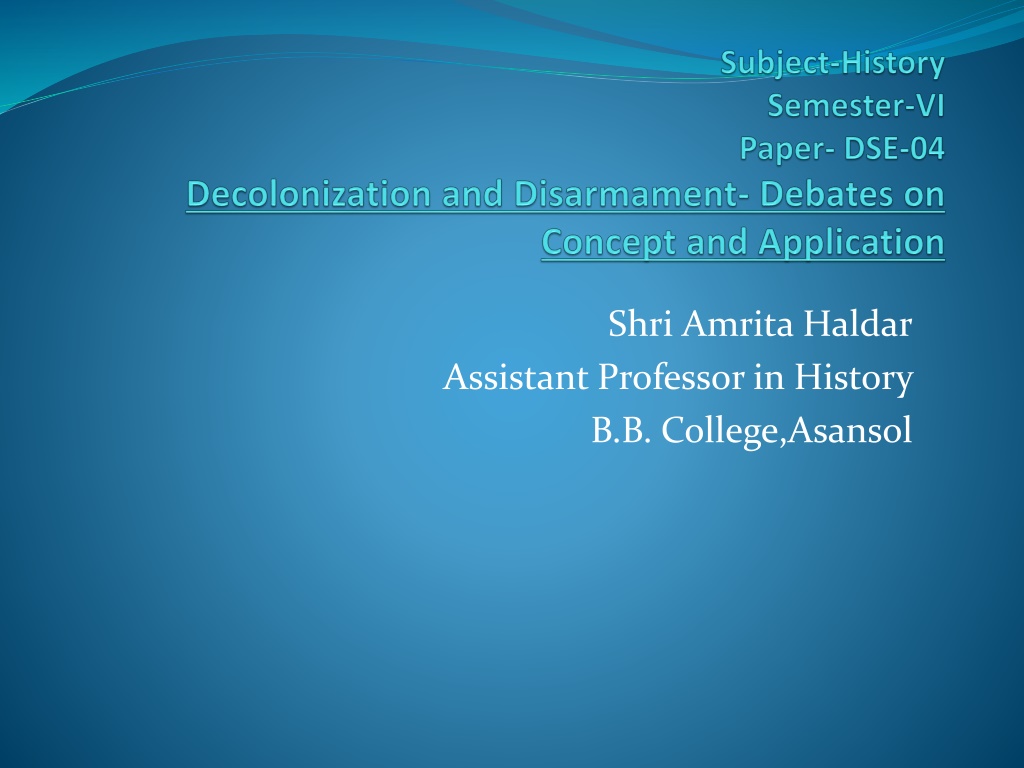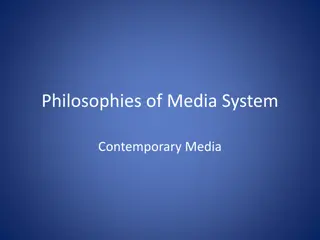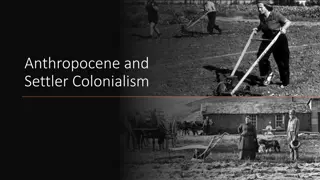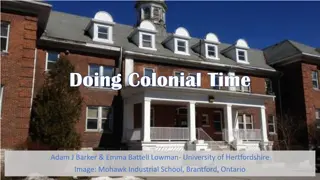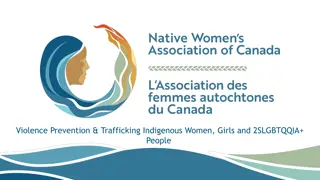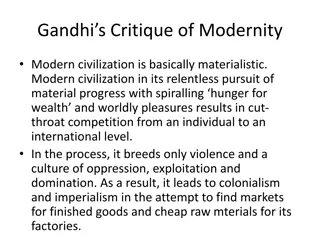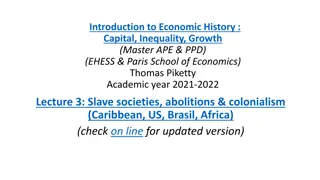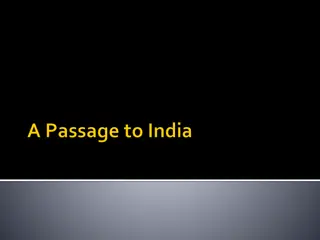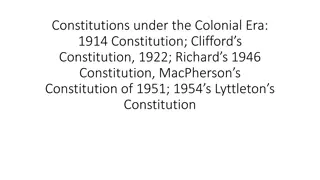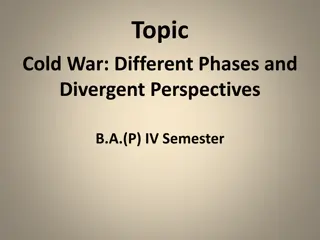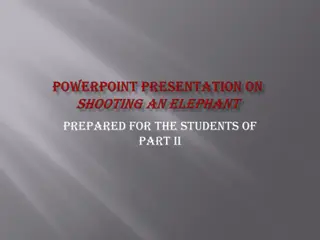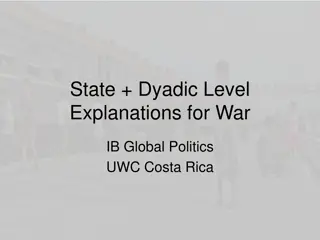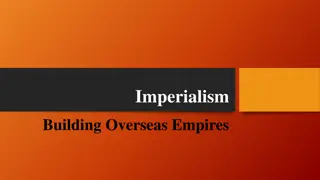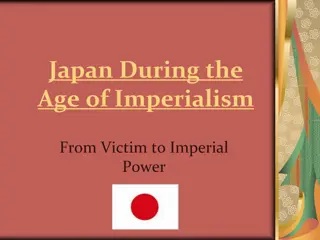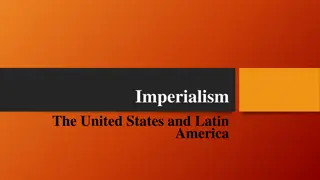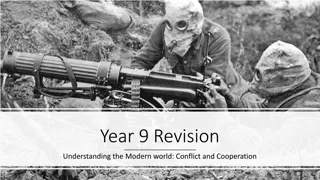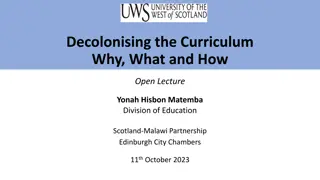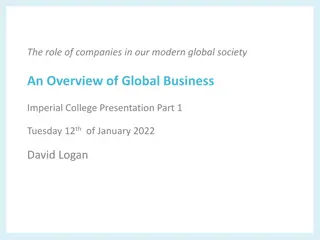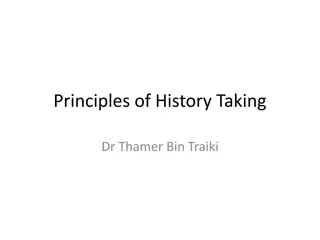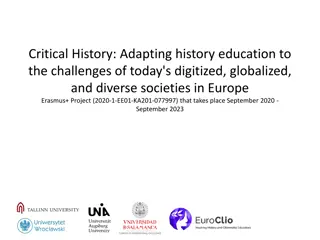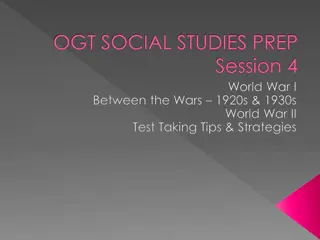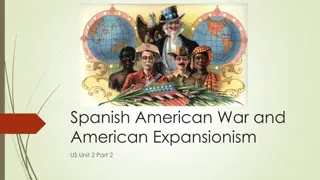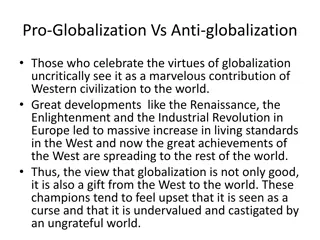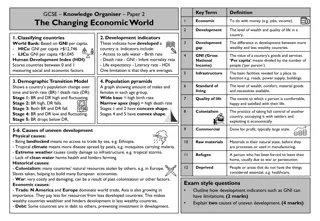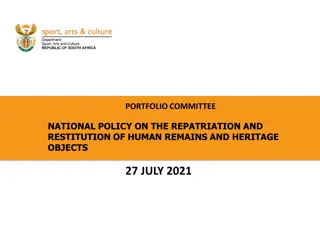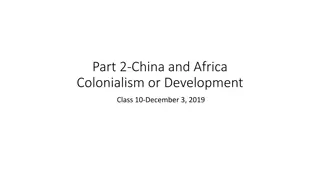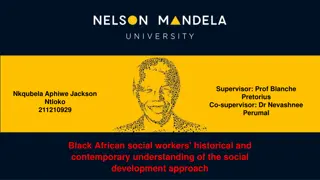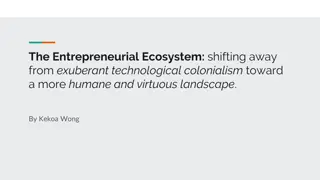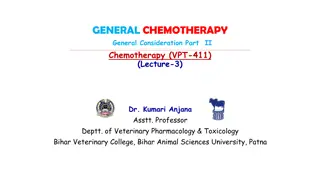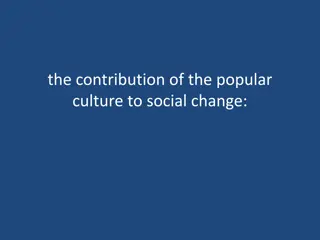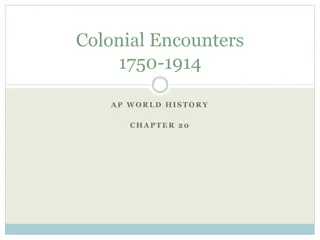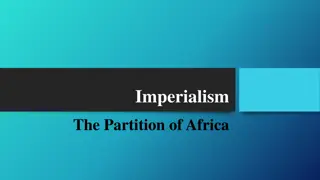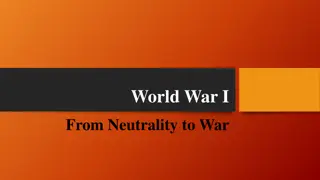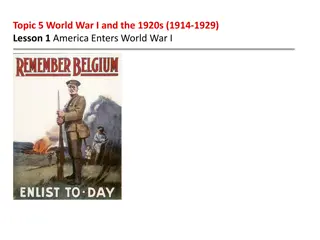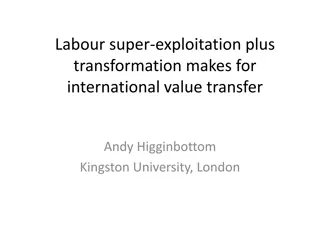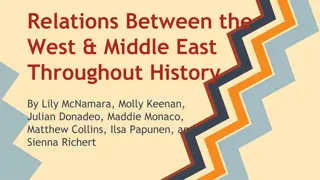Understanding Colonialism and Imperialism in Modern History
The discussion revolves around the impact of colonialism and imperialism on international relations, focusing on the historical context, economic consequences, and nationalist movements against colonial powers. Highlighting key players such as Great Britain, France, and Germany during the 19th century, it addresses the core-periphery theory and struggles faced by third world countries. The narrative also delves into the Indian National Congress's role in challenging colonial rule and advocating for political and social rights.
Download Presentation

Please find below an Image/Link to download the presentation.
The content on the website is provided AS IS for your information and personal use only. It may not be sold, licensed, or shared on other websites without obtaining consent from the author. Download presentation by click this link. If you encounter any issues during the download, it is possible that the publisher has removed the file from their server.
E N D
Presentation Transcript
Shri Amrita Haldar Assistant Professor in History B.B. College,Asansol
Colonialism If we are discuss the international relation Colonialism and Imperialism this two ward always come in this discuss. When we are discuss the historiography of western modern history personal property, democracy- those are come in this discuss and trade also include in this way. In the nineteenth century the newly country of Europe took the military expedition in various country of Asia and Africa continent, this process is continued 1880- 1914. Great Britain, France, Germany, Netherlands- those country are contributed as a leading role in this process.
In the other side the United State is to non reactive about the imperialism theory, for that except Canada there are many democratic country have seen in Caribbean Island and South America. But those country also depend on develop state about they economical consequence. So that imperialism is like a Pyramid, in this way the Non- European country are establish in the lower side and capital country are upper side of the pyramid. This situation divide the world into two parts, Immanuel walstain discuss this situation with the Core- Periphery theory. Core or colonialism country are pressured the Periphery country about economic, political. In this situation Lenin has said that undeveloped country not to export the commodities and also the capital.
Struggle Against Colonialism In the middle half of 20thcentury the third world countries has to captured by various imperialism power. The western countries has to treat the colonial countries as a supply of raw materials and minerals, for that the imperialist power, colonial power and half colonial power s economical difference has to create extreme. In the help of western administration, productive commodities the western culture and nationalism are scattered in the various colonial country. The peoples of Asia and African continent they are very concern about their political aim, for that educated classof colonial power has to start the
Struggle against the imperial power. From the various incidents the nationalist movement has to develop in various colony. Hence in the last half of the nineteenth century the light against the colonial power has to seen but the extreme position has to seen in the before the First World War. Nationalist movement of India its a very important chapter in the international history. India has to bump exploitation, political right, and social inequality. In he leadership of Indian National struggle against the colonial rule is to very extreme. In the first half of the Indian National Congress the against the economical Congress(1885)the
leadership is come from the Elite and educated society of the country, the main aim of this leadership is to economic development and administrative reformation, un educated and illiterate people are out of this struggle. The Indian Nation Congress first to demand Swaraj in the year of 1906. For the impact of first world war and October revolution of Russia the waves of nationalist movement has to scattered. In Egypt the leadership of a political party known as Wafd the nationalist movement has to scattered. In India the nationalist movement has to extreme with the leadership of Mahatma Gandhi, but main reason is to focus the Jalianwalabag Massacre. But his main aim
to with the help demand of Swraj is to exposed into British Govt . For that after this incidents some time the British Govt have to very tense about that matter, the struggle has scattered in all over India. The British Govt was awaking about the feature of India. Second democratic movement will start in 1930,for that the British Govt has to approved the Indian administration law in 1935.In various colonial area the democratic movement has to extreme. The democratic movement In Islamic colonies of France have to modernise. In the other side the movement is togrowth in Indonesia. and cooperation of Indians the
In the mean time in Africa continent the movement against the colonial power is to growth. The educated young generation promoting in the news paper against the colonial rule, main aim of their movement is to attackpolice,administration,economicbackwardness. Kenya, Nigerian people have to inspire to Black Movement of America. It has seen that before the second World war the last stage of colonialism. Britain has to continuous his process 1940 to 1950, after that Britain have to accept Commonwealth country those are colony of Britain. America, Latin America, and Philippines are follow the same route. the independent of
The Duchess role in Indonesia are to be attacking but in the end they are defeat. France have to a last chance attacked with the help of England and America, but France have failure in this time. In the mean time in Iran and with the leadership of Nasser in Egypt the struggle against the colonial movement is to extreme. In this way in Syria, Iraq the movement will developed, France and Britain have todefeat in this way.
De-Colonization From the middle half of the 20thcentury in various place of third world the capitalist country have to change their policy for the pressure of nationalist movement. In this discussion we have to see that in Asia continent with India and various colony of Africa continent the nationalist movement is to extreme. But Britain did not gave a unique India, for the divided of India the birth country Pakistan is to establish. Britain have to transfer the power to Srilanka, Barma, and Palesthein in the year of 1948. In the mean time Japan has to surrender to America in 1945. In 1957 Malay has to independent.
There are two reason for de colonization first is economically it is very expensive and there is rear chance to stopped this nationalist movement by colonial power. Apart from that the colonial power has to establish their own power beside the political power. United Nations has to leading role to establish the de- colonization. For that de-colonization has to establish in 1980 with out any movement. There are many independent country in Asia continent is to establish. Among them there are many country is a member of United Nations. International friendship is a very important part of today's world, in this process United Nations leading avital role.
Summary In this colonial rule in various third world country have to struggle against the imperialism power and we also discuss what are reason is behind in this struggle. Educated people how to influence to general people for this struggle against colonialism. Various country of Africa, Asia continent- how they inspired by other country. topic we have to discuss about the time of
Books & References 1) Szieing Lawrence: An Introduction to Asian Politics. 2)Frankle. J. The Making of Foreign Policy. 3) Sumit Sarkar: Modern India 4) Sumit Sarkar : Swadeshi Movement In Bengal:1903- 1908.
Proposed Question 1) Explain the different phases of decolonisation in the Post-Second World War period. 2) How would you explain decolonisation in international politics since 1945 ? 3) Evaluate the role Organisation in maintaining world peace the role of the of the United Nations
